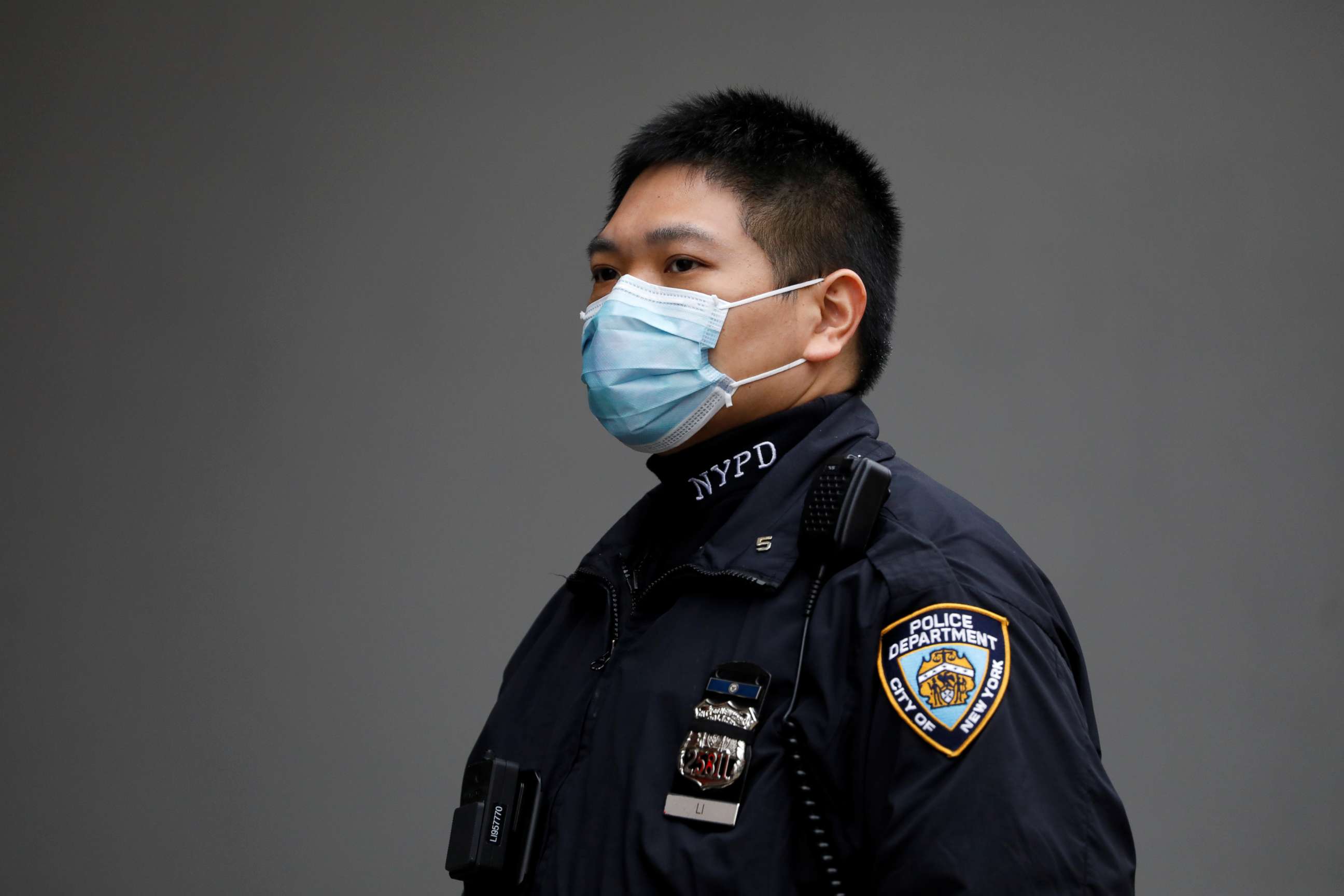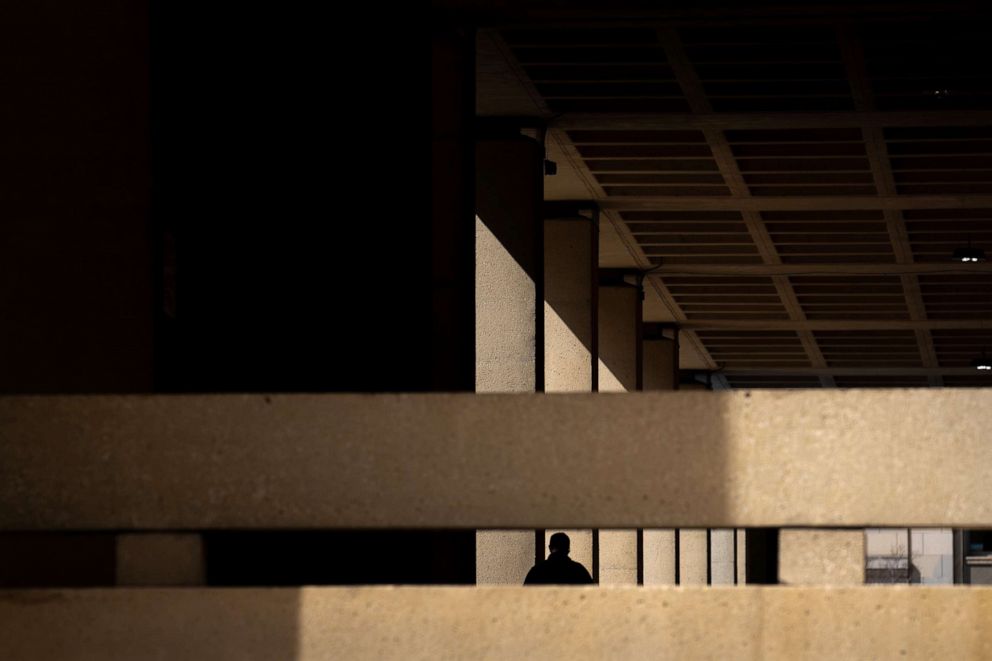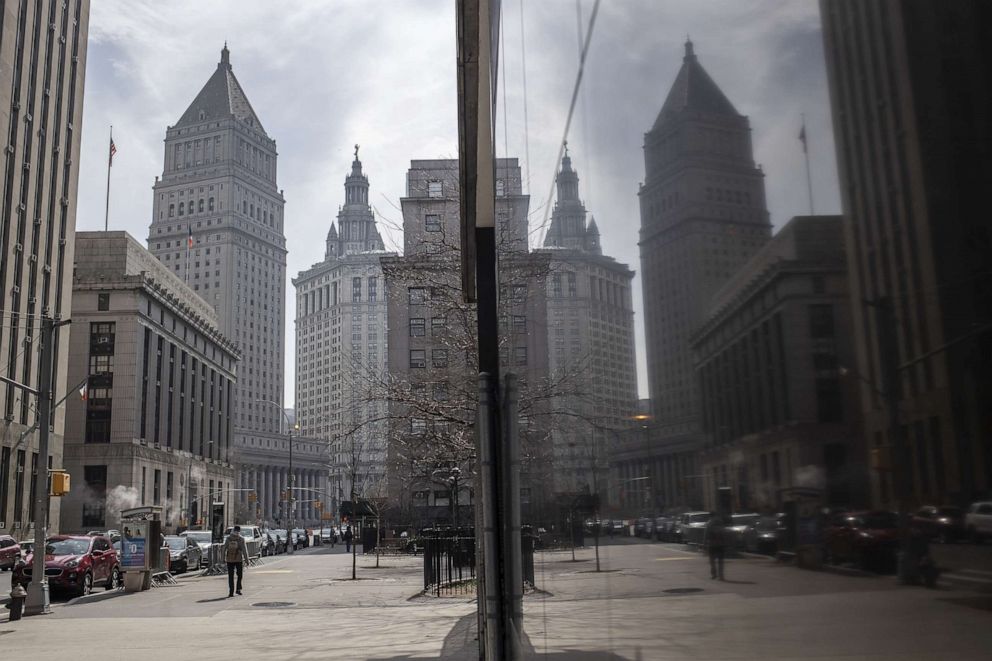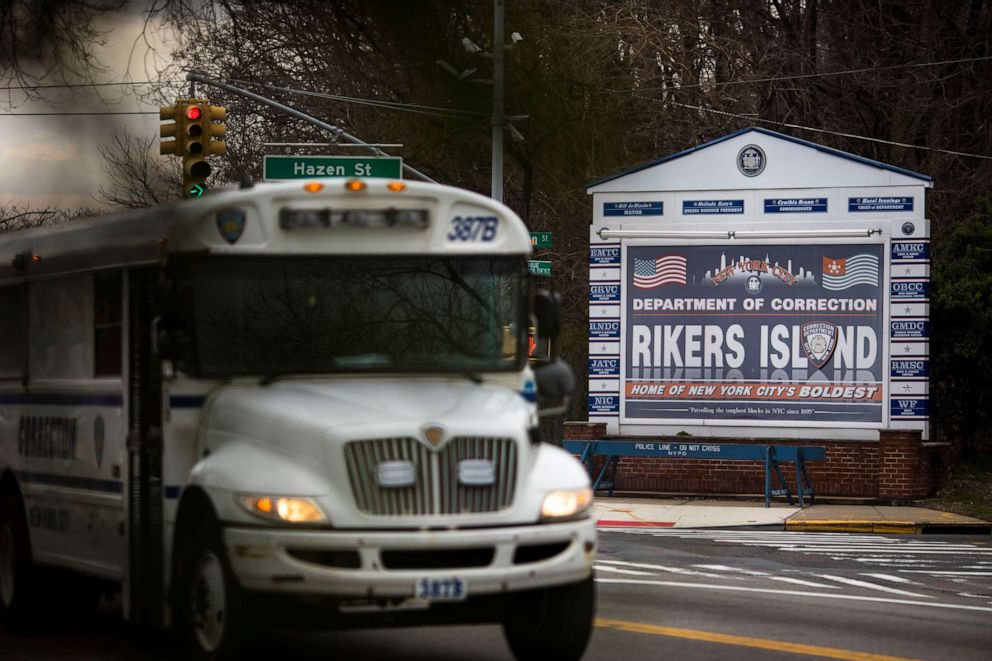How the coronavirus outbreak is affecting the US criminal justice system
Here is a snapshot of the dramatic changes to four branches of law enforcement.
In the span of a single week, the U.S. criminal justice system endured unprecedented upheaval, as law enforcement officials around the country — from police to prosecutors, courts to corrections – enacted bold new initiatives to continue their work in the face of the coronavirus pandemic.
Here is a snapshot of last week’s dramatic changes and what to expect in the week ahead.
POLICE

Police departments in numerous states have begun scaling back arrests for low-level offenses, precipitating what is expected to be a significant drop in the number of arrests nationwide, in an effort to limit the exposure of officers to the virus.
“We're looking at essential calls for service,” Steve Casstevens, president of the International Association of Chiefs of Police (IACP), told ABC News. “Situations like losing a license, getting into a fender bender, don't require an emergency response or a sworn officer to respond to.”
Sheriff David Mahoney, who leads the National Sheriffs' Association, also said his organization is working with local, state and federal partners “to decrease the number of people who are physically arrested and brought to jail.”
Last Thursday, for example, the Nashville Police Department (NPD) announced that its officers would essentially stop making misdemeanor arrests, with the exception of domestic violence or driving under the influence charges, in order to “reduce the opportunity for COVID-19 exposure within Nashville’s detention facilities and to Sheriff’s Office detention staff.”
Law enforcement officials told ABC News last week that police officers are facing the same shortages in personal protective equipment and access to testing that has plagued the healthcare system, even as they are increasingly tasked with enforcing new stay-at-home orders and other restrictions.
The New York Police Department (NYPD) has already faced significant exposure to the virus, as the number of confirmed coronavirus cases within its ranks surged from four on Thursday to 52 on Friday.
As a result, more departments are expected to cut back on non-essential services during the outbreak.
Last Wednesday, for example, the sprawling Los Angeles Police Department (LAPD) closed its precincts’ front desks to the public, in order to “ensure social distancing and do our part to slow the spread.”
FEDERAL LAW ENFORCEMENT

Federal law enforcement agencies, meanwhile, are focusing on the ways in which criminals could seek to profit from the coronavirus outbreak as well as adopting new strategies to continue their missions.
The Federal Bureau of Investigation (FBI) and several federal prosecutors around the country have devoted resources toward combatting coronavirus-related fraud, warning the public of several schemes and scams that have emerged amid the health crisis.
"The last thing the American people need, in the middle of this pandemic, is criminals trying to take advantage of them and profit off their concerns," FBI Director Christopher Wray said last week. "That is the kind of thing we need to stay especially vigilant about. And of course, other kinds of criminals and adversaries may also seek to capitalize on this situation. And that is why we will not let our guard down.”
U.S. Customs and Border Protection (CBP) officials are enforcing new restrictions on travel and commerce along the borders with Canada and Mexico, restricting all nonessential travel, which limits crossings to U.S. citizens and lawful permanent residents returning to the U.S., people traveling for medical purposes, to attend educational institutions and for work in the United States. Also included are emergency response workers, people involved in trade, government and diplomatic travel and the military. U.S. Citizenship and Immigration Services is shutting down its asylum services office and cancelling pending appointments.
Immigration and Customs Enforcement (ICE) agents will continue to pursue investigations involving child exploitation, gangs, narcotics trafficking, human trafficking, human smuggling, and terrorism, but the agency has ceased enforcement operations “at or near health care facilities,” except in extraordinary circumstances determined necessary for public safety. Officials urged undocumented immigrants to “not avoid seeking medical care because they fear civil immigration enforcement.”
The Drug Enforcement Administration, while it continues to pursue investigations related to illegal drugs, is working to ensure medicines that are regulated as controlled substances remain available for medical needs, dropping a requirement that patients be seen in person and allowing for the use of telemedicine to write prescriptions for those drugs.
COURTS

Dozens of federal courts around the United States have now closed and delayed trials, and according to the National Center for State Courts, at least 30 state courts (including the District of Columbia) have either restricted or ended jury trials, with many suspending in-person proceedings entirely for the time being.
Other major municipalities, including New York City, have moved as many proceedings as possible to video. That suspension didn’t include parole hearings, but protests from public defenders and social workers brought them to a grinding halt anyway.
“The hearing rooms are a disaster,” Lorraine McEvilley of the New York City Legal Aid Society told the nonprofit news outlet The City. “It’s like a small dining room table.”
As for the nation's highest court, the Supreme Court took the extraordinary step this week of delaying oral arguments for the month -- the most significant disruption to the court's business since the 1918 Spanish flu epidemic. On Friday, several of the Supreme Court justices participated in their regularly scheduled private conference by phone.
A few courts have struggled to stay open. One large Ohio county tried to rush as many people through the system as possible, holding mass plea hearings. Courts in Orange County, Calif., tried to “re-open” on Thursday after a brief halt but quickly descended into what the Los Angeles Times described as “total chaos.”
As judges from the San Mateo County Superior Court in California noted in a statement issued last week: “The Court has a constitutional duty to remain open to serve the needs of the community to the greatest extent possible, even in the face of a potential COVID-19 outbreak.”
CORRECTIONS

The crisis is perhaps most immediate within correctional institutions, as wardens of prisons and jails across the U.S. – fearing a viral outbreak that leads to riots – are scrambling to respond to the coronavirus pandemic.
As the former New York City jails commissioner Martin Horn told ABC News on Thursday, “People refer to cruise ships as petri dishes, but nobody has invented a more effective vector for transmitting disease than a city jail.”
On March 13, the Federal Bureau of Prisons issued an order that suspended social and legal visits and halted all inmate transfers. But two independent federal law enforcement sources told ABC News that inmate transfers were continuing and complained of a massive shortage of supplies nationwide.
Inmates across the nation began testing positive for COVID-19 late last week. The BOP has an infectious disease emergency plan, but it is contingent on having the right testing and medical equipment. Sources told ABC News that personal protective equipment, hand sanitizer and soap are at a premium in these facilities.
Only a quarter million of the nation’s 2.3 million inmates are federal prisoners, however, with about 1.3 million in state prisons, and about three-quarters of a million in local jails, according to the non-profit Prison Policy Initiative.
Pressure has been building all week from corrections officers, healthcare leaders and even some prosecutors to free as many low-level inmates from their local institutions as possible.
"Imagine you have to suffer through the COVID-19 outbreak in a closed building,” Tim Zerillo, a member of the Board of Directors of the National Association of Criminal Defense Lawyers, wrote in a blog post on March 16. "You are in that building in close quarters with others. You cannot leave. You cannot step outside for a breath of fresh air. You cannot wash your hands or douse yourself in Purell whenever you like. You are stuck there, with others, waiting for the virus to get you.”
Early last week, Cuyahuga County in Ohio and Los Angeles County in California began releasing hundreds of inmates incarcerated for low-level offenses. New York City released a small amount of inmates from city facilities later in the week.
Dr. Homer Venters, the former chief medical officer of the New York City Jail System, predicted that the coronavirus pandemic will put extraordinary pressure on a long-neglected corner of the healthcare system.
“COVID-19 will remind us of a central hypocrisy in our approach to health behind bars,” wrote Venters in an op-ed for The Hill on Feb. 29. “We've built the world's largest collection of jails and prisons, and kept the health services in these places remarkably separate from the rest of our national health systems.”
"The CDC, state departments of health, the Joint Commission and other bodies that promote evidence-based care in our hospitals, ambulatory care clinics and nursing homes are largely absent in these settings,” he continued.” As a result, management of this pandemic will be harder and less effective for incarcerated people, their families and staff in these institutions."
ABC News’ Pierre Thomas, Chris Francescani, Luke Barr, Aaron Katersky, Josh Margolin, Jack Date, Alexander Mallin, Cindy Galli, Tonya Simpson, Kaitlyn Folmer and Brian Hartman contributed to this report.




